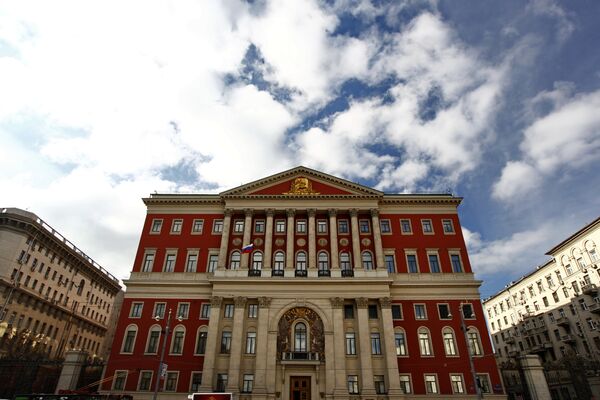MOSCOW, May 16 (RAPSI/RIA Novosti) – The organizers of several planned gay pride events have appealed to a local court over Moscow City Hall's refusal to authorize their events, activists said in a press release published on the Gayrussia.eu website on Thursday.
According to the press release, the organizers of two planned parades and two rallies in support of the LGBT community have asked the Tverskoi District Court to consider their complaint before the events are due to be held, and are seeking for city officials to be ordered to authorize the parades and rallies.
The gay pride parade organizers plan to file additional complaints with Moscow’s Tagansky District Court against a ban on holding gay pride pickets on May 25 and 26, and with the Khimki City Court against a ban on holding a rally and gay pride march on May 25.
In their complaint, the campaigners referred to the European Court of Human Rights' 2010 ruling that found the ban of similar public events in Moscow in 2006, 2007 and 2008 to be illegal.
On Wednesday, the head of City Hall’s security department announced that the Moscow mayor’s office had refused to authorize a gay pride parade planned for May 25. Alexei Mayorov, the city's top security official, said any unsanctioned action would be thwarted.
Mayorov cited society’s likely “negative attitude” toward the event as the reason for banning the parade.
Homosexuality was only decriminalized in Russia in 1993, and anti-gay sentiment remains strong in society, including among Russia's political establishment. In 2007, former Moscow mayor Yury Luzhkov described attempts to hold a gay parade in the capital as "satanic."
In the most recent high-profile example of persisting homophobia in Russia, on Monday investigators in the southern city of Volgograd confirmed a 23-year-old man beaten to death there last week was the victim of a homophobic gang. His skull had been smashed with a rock and his genitalia mutilated, and he had been raped with beer bottles, regional media reported.
The Russian authorities have never sanctioned a gay pride rally, though LGBT activists have been applying for permits in Moscow since 2006. Last May, the St. Petersburg authorities permitted a rally against homophobia, but its participants were attacked by dozens of masked thugs, all of whom evaded arrest.
A ban on spreading “gay propaganda” among minors, currently under review in the Russian legislature, envisages fines of 4,000 to 500,000 rubles ($130 to $16,500) for individuals and organizations trying to convince minors that same-sex relations are equal to heterosexual relationships. Local legislatures in several Russian regions, including St. Petersburg and Novosibirsk, have already passed similar laws.


